 |
| From left to right, Hessen State Prime Minister Volker Bouffier, Vietnamese Consul General in Frankfurt (Germany) Nguyen Huu Trang and Deputy Prime Minister and Minister of Foreign Affairs Pham Gia Khiem on the official opening day of Villa Hanoi - the headquarters of the Vietnamese Consulate General in Frankfurt, September 13, 2010. (Photo: TGCC) |
Over the past half century of many changes, I am proud and fortunate to have had 49 years of attachment to the German language and Germany in many different positions, from the days as a Law student in both parts of Germany before reunification, to diplomatic negotiations and three terms of work at the Vietnamese diplomatic and consular representative agencies in Berlin and Frankfurt am Main.
All beginnings are difficult (All beginnings are difficult)
In 1975, our people's resistance won a glorious victory with the Great Spring Victory, unifying the country. Although peace was restored, the country was still littered with war remnants. Friends who had wholeheartedly supported our people's resistance, the brotherly Socialist countries in Eastern Europe and our friends in Asia, Africa, and Latin America, who had just gained independence, were still facing countless difficulties from the consequences of the Cold War and embargo.
At that time, Germany was still divided. The German Democratic Republic (GDR) in the East had established diplomatic relations with the Democratic Republic of Vietnam very early, on December 16, 1954. When I was very young, I learned about that faraway country from the colored illustrated pages published by the Embassy in Hanoi that I was lucky to have. I loved Germany from that day.
The Federal Republic of Germany in the West only established diplomatic relations with Vietnam much later (September 23, 1975), but sent an Ambassador to Beijing to hold a concurrent position. Nearly a year later, in August 1976, the first permanent Ambassador Peter Scholz (1976-1978) and a few new diplomatic staff arrived in Hanoi, but there was no headquarters yet. He and his diplomatic delegation had to temporarily stay and work at the Thong Nhat Hotel on Ngo Quyen Street (now Sofitel Metropole) in rooms that he later recalled were dark and moldy due to frequent power cuts, and even had... rats.
The first Ambassador of the Socialist Republic of Vietnam (later Deputy Prime Minister and Minister of Foreign Affairs) Nguyen Manh Cam and his colleagues, when coming to Bonn, also had to temporarily stay in a small house shared with many families in the Bad Godesberg area.
This was a period when both sides were still wary and probing each other, especially when the US embargo was imposed on Vietnam after 1975 and when the two sides had different views on the issue of Vietnam helping the Cambodian people escape genocide (1978-1979).
Despite such twists and turns in the official relationship, the Vietnamese people still remember the kindness of the West German people in the anti-war movements, supporting and helping Vietnam such as "Hilfsaktion für Vietnam", "Medikamente für Vietnam"... Until today, many people in these organizations still have activities day and night to connect friendship between the people of the two countries, typically the FG Organization (Freundschaftsgesellschaft) headed by Professor, Dr. Giesenfeld, is an active partner of the Vietnam-Germany Friendship Association (VDFG).
After 1986, with the Doi Moi policy of the 6th Congress of the Communist Party of Vietnam, bilateral relations began to improve, initially with exploratory visits by some large German enterprises such as Siemens. Some German non-governmental organizations also resumed support and humanitarian activities and provided some scholarships for Vietnamese students to study in West Germany.
In 1988, I was also one of the Vietnamese people who went to West Germany to study and research social sciences (Law) with a scholarship from the University Assistance Organization (DAAD), because before that, DAAD only granted scholarships for technical subjects.
At this time, fundamental changes took place in Europe with the dissolution of the Soviet Union and the Eastern European socialist countries, including the GDR. On October 3, 1990, Germany was reunified. The Embassy of the GDR in Hanoi merged with the Embassy of the Federal Republic of Germany and the Embassy of Vietnam in Berlin ceased operations and became the Berlin Office (1990-2000).
During the German reunification process, Vietnamese people living, studying and working in Germany were also affected. Tens of thousands of workers were sent to Germany under the Agreement between our Government and the Government of the German Democratic Republic. During the process of restructuring the Eastern economy, most of the old factories and enterprises of East Germany were dissolved and workers fell into mass unemployment.
Vietnamese workers were also dragged into that spiral. They not only lost their jobs but also faced the risk of losing their legal residency in a unified Germany. The new German government introduced a number of measures to encourage foreign workers to return home (such as a reintegration allowance of 3,000 DM). Many Vietnamese took this and returned home, but the majority chose to stay and fend for themselves.
It can be said that in the decade since 1990, the relationship between the two countries has experienced difficulties that seemed difficult to overcome, especially in the context of a newly unified Germany reshaping its position in a post-Cold War Europe and Vietnam beginning a process of deep international integration by normalizing relations with all major countries, joining APEC, ASEAN...
 |
| German House in Ho Chi Minh City. (Source: Zing) |
Overcoming differences builds trust
The more difficult the times, the more we persevere in the principle of "Remaining constant, responding to all changes" to resolve and turn challenges into opportunities, "turning big things into small things, turning small things into nothing" as President Ho Chi Minh taught to Vietnamese diplomacy. Because during this time I was assigned to directly participate in handling many "difficult cases" of Vietnam-Germany relations, I learned a few valuable lessons for myself.
One is to persevere in dialogue in all circumstances.
In late 1994, Chancellor Helmut Kohl made his first official visit to Vietnam as Chancellor of a unified Germany. The issue of illegal residence and the activities of Vietnamese organized crime gangs was first mentioned at the highest level, alongside other important issues of bilateral relations. Before the visit, the German delegation reported that this was the biggest "blockage" to clearing the relationship.
When he and German Ambassador Christian Kraemer saw the delegation off at Noi Bai airport, the Ambassador whispered to me: "Chancellor Kohl was very pleased with the meetings in Hanoi and he even promised to return."
In early 1995, Chancellor Kohl sent a delegation led by Chancellor Schmidbauer and Foreign Minister Hoyer to Hanoi to concretize the previous agreements between the two Chancellors. The two Ministers of State signed with Minister of the Government Office Le Xuan Chinh the "Hanoi Declaration" on January 6, 1995, according to which Vietnam would accept back 40,000 Vietnamese without valid residence status in Germany through direct negotiations between the two countries.
But while the two countries' negotiating delegations were in talks, local immigration agencies in some places continued to deport people without prior consultation or waiting for the Vietnamese side to verify and issue travel documents, leaving hundreds of Vietnamese stranded in Hong Kong (China) or Bangkok (Thailand). This caused negotiations to fall into a deadlock at times and put them at risk of not being able to implement a high-level agreement.
After the first round in Hanoi, the two sides still scheduled to meet again in Bonn (at that time the German Government had not yet moved to Berlin) and decided to upgrade the Head of the Delegation to Deputy Foreign Minister and State Secretary of the Federal Ministry of the Interior. Between the rounds of negotiations, the two sides maintained dialogue through the Embassies of the two countries.
The same situation happened with the "German House" project, which later became the "lighthouse project" in the Strategic Partnership.
During Chancellor Angela Merkel's visit to Vietnam from March 3-4, 2011, the two sides signed a "Joint Statement" upgrading the relationship to a Strategic Partnership towards the future and a Government Agreement on the German side leasing the land in District 1 (old) of Ho Chi Minh City, which had previously been purchased from the Saigon government to build the "German House" (called Agreement I). The design, construction and operation of the German House will be negotiated and signed by the two sides in a separate Agreement (called Agreement II).
In fact, to reach an agreement like Agreement I required both sides to have a very high political determination and on the Vietnamese side the decision had to be at the highest level. After the highest efforts, the negotiators of the two countries finally found a peaceful solution that was agreed upon by both sides.
Negotiating Agreement II seemed simple, but the more we delved into specific technical issues, the more significant differences emerged between the two sides. The most difficult part was reconciling the privileges and immunities that the German state enjoyed as the lessee and owner of the German House with the provisions of Vietnamese law relating to the business operations of this building, as well as with international law on the privileges and immunities of the part of the building used as the headquarters of the German Consulate General in Ho Chi Minh City.
Second, try to listen and understand.
In every negotiation, each side pursues and protects its own expectations and desires at the highest level. The problem is that many times the two sides' views are too far apart, and if they do not find a way to reach a common voice, the desired results will never be achieved, especially when each side insists on protecting its own interests without paying attention to the interests of the other side.
As for the issue of re-admitting people who are not granted residency by Germany.
After reunification in 1990, Germany faced numerous difficulties, including the problem of residence of hundreds of thousands of foreigners who came to the GDR to work and those who entered Germany during the years of political turmoil. The majority of asylum applications were rejected and fell into an uncertain legal situation. In addition, the activities of foreign organized crime organizations caused social instability. We also sympathize with your situation and put ourselves in their shoes to try to find common ground. Doing so also helps the Vietnamese community in Germany to stabilize their residence and business.
Regarding the German House Project in Ho Chi Minh City, both sides wish to build this house as a new symbol, a "lighthouse project" in the newly established Strategic Partnership. The German government assigns the construction and operation of the building to private investors, although the German government is still the nominal owner, and for private investors, what they care about most is the economic efficiency of using this 30-storey office building to quickly recover capital and operate profitably.
On July 21, 1995, the Agreement on the readmission of Vietnamese citizens not granted residency in Germany was signed in Berlin between the Head of the Vietnamese Government's negotiating delegation, Deputy Foreign Minister Nguyen Dy Nien (later Minister of Foreign Affairs) and German Interior Minister Manfred Kanther.
Later, the German side always assessed this as the best Agreement that Germany had ever reached with a foreign country, contributing to the satisfactory resolution of complex issues and opening up a trustworthy cooperative relationship between the two countries, even in the seemingly extremely complicated field of cooperation in crime prevention.
During the visit to Germany of our National Assembly's high-ranking delegation (March 12-14, 2013), on March 13, the Vietnamese Ambassador to Germany and the German Minister of State for Foreign Affairs signed the Agreement on the design, construction and operation of the German House (Agreement II) witnessed by National Assembly Chairman Nguyen Sinh Hung and Foreign Minister Westerwelle.
Later, we, the Vietnamese negotiators and the German negotiators, truly became trusted friends. Personally, I always remember the time we sat together at the negotiating table or had private conversations with Dr. Lenguth, Director General of the German Interior Ministry, Dr. Böse, State Secretary of the Berlin Interior Ministry, later Minister of the Interior of Schwesig-Holstein, and Ms. Rogall-Grothe, Director General, later Secretary of the Federal Interior Ministry, or Dr. Freiherr von Werthen, Director General of the Foreign Ministry and later German Ambassador to Japan.
Building new pillars for future cooperation
The Vietnam-Germany friendship has gone through half a century of excitement and begun to move to a new stage of development.
There is a saying "At the age of 50, one understands one's destiny". Broadly speaking, in international relations, partners need to understand and grasp the trend of the times in order to take timely and appropriate steps to develop the relationship even more brilliantly.
So what is the "destiny" for the coming period in Vietnam-Germany cooperation?
The past 50 years, especially the 15 years of strategic partnership, have made the two countries trusted friends and leading economic and trade partners in the region. However, there is still much room for development that has not been exploited to create new momentum for development.
Vietnam is one of the countries with the largest German-speaking community in the region, with hundreds of thousands of people living, working and integrating well in Germany, with the second and third generations becoming a good part of Germany's multicultural society.
In Vietnam, many generations of Vietnamese people have studied, worked and are attached to Germany, considering Germany their second homeland. They are the bridge and also the driving force for bilateral relations.
Germany is famous for its basic university education and training system, along with vocational training, with outstanding incentives (such as tuition fees, living expenses, etc.). German people highly appreciate Vietnamese people for their qualities that they consider to be gradually disappearing even in Germany, such as diligence, hard work, dexterity and studiousness.
Recently, learning German to go to university, learn a trade or work in Germany has become a trend, especially when traditional destinations in the English-speaking region are facing many obstacles.
But the most important point is that learning German in Vietnam is not simple, even at universities or large foreign language centers in Hanoi or Ho Chi Minh City. Previously, both sides had a policy to make German one of the main foreign languages taught in high schools in Vietnam, but the project was not successful due to a lack of teachers.
Cooperation in education and training between Vietnam and Germany has a long tradition, but why has it not been able to make a breakthrough? Why has the Vietnamese-German University (VGU), one of the "lighthouse projects" of the Strategic Partnership, not yet been able to become an excellent training and research institution in the region and the world, with German as the language of teaching and learning?
Our people have a tradition of loving learning. President Ho Chi Minh once said, "For the benefit of ten years, plant trees; for the benefit of a hundred years, cultivate people." The coming period is the era of development for Vietnam. We consider science and technology, education and training as the key to success and have made being good at English a mandatory requirement to become a global citizen in training at all levels.
In addition, the teaching and popularization to some extent of other important languages in the world will certainly supplement the new development momentum. German, with more than 100 million people in the world using it as their mother tongue (German, Austrian and Swiss), needs to be invested in and paid more attention in Vietnam, as a basis for cooperation in education, training, vocational training and high-quality labor. Germany can contribute more in this matter.
The vigorous "middle age" of this relationship will certainly bring new sweet fruits if we "know the time, know the situation, know ourselves, know others".
That is also understanding fate!
| Ambassador Nguyen Huu Trang is Vice President of the Vietnam-Germany Friendship Association, former Director of the Consular Department, Ministry of Foreign Affairs; former Head of the delegation of experts negotiating the Readmission Agreement and the Protocol on Cooperation in Crime Prevention (1995), former Head of the delegation of experts negotiating the German House II Agreement. |
Source: https://baoquocte.vn/tuoi-trung-nien-sung-suc-cua-quan-he-viet-duc-328449.html



![[Photo] General Secretary To Lam receives Slovakian Deputy Prime Minister and Minister of Defense Robert Kalinak](https://vphoto.vietnam.vn/thumb/1200x675/vietnam/resource/IMAGE/2025/11/18/1763467091441_a1-bnd-8261-6981-jpg.webp)

![[Photo] Prime Minister Pham Minh Chinh and his wife meet the Vietnamese community in Algeria](https://vphoto.vietnam.vn/thumb/1200x675/vietnam/resource/IMAGE/2025/11/19/1763510299099_1763510015166-jpg.webp)


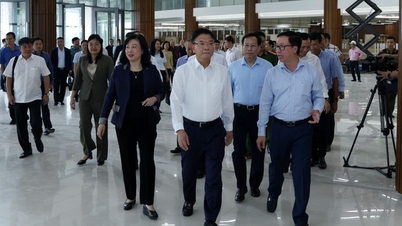

![[Photo] National Assembly Chairman Tran Thanh Man received a delegation of the Social Democratic Party of Germany](https://vphoto.vietnam.vn/thumb/402x226/vietnam/resource/IMAGE/2025/10/28/1761652150406_ndo_br_cover-3345-jpg.webp)

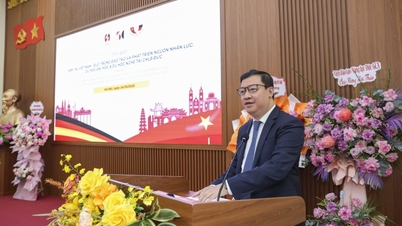

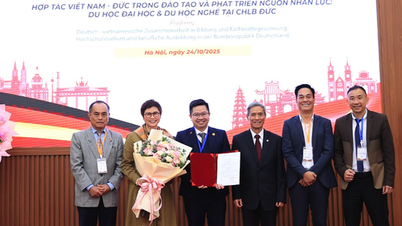

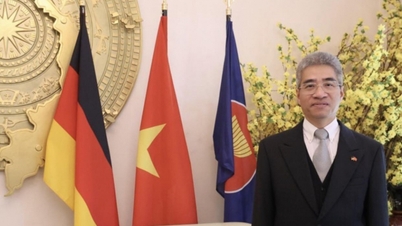

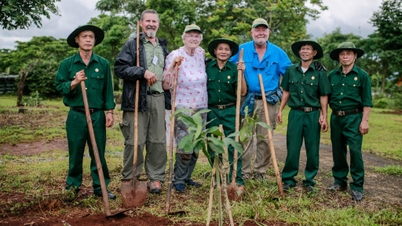
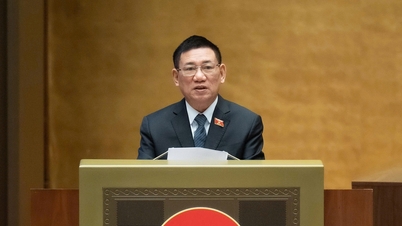

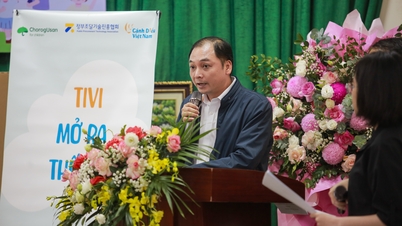
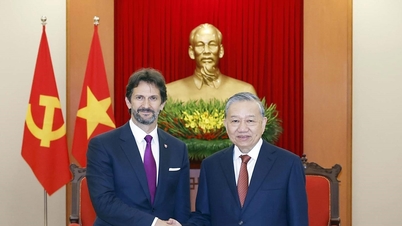

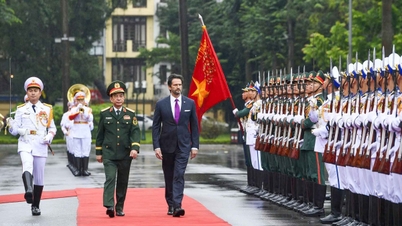




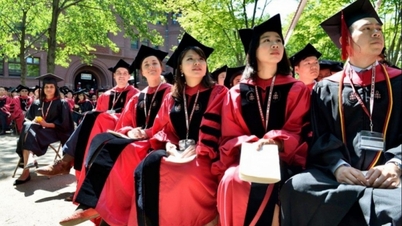

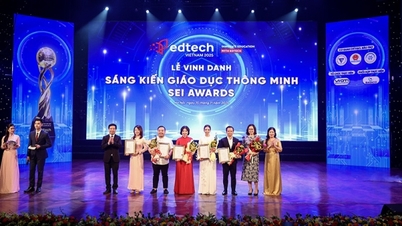







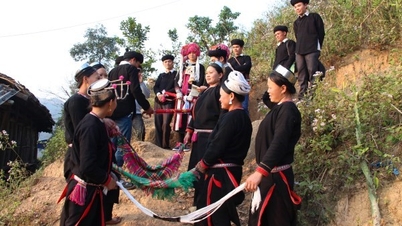



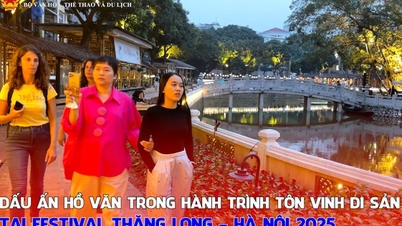

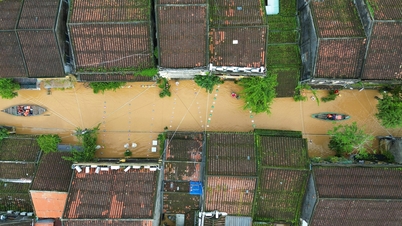
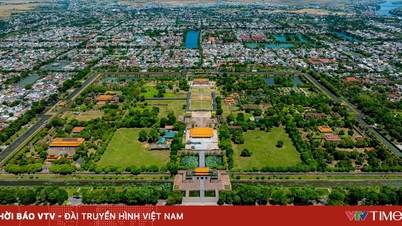





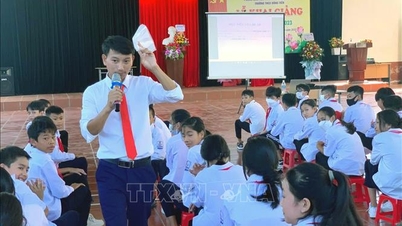

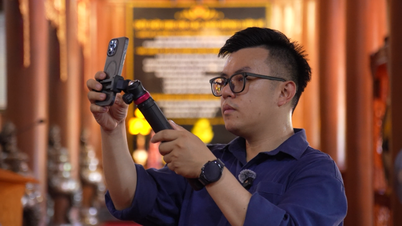

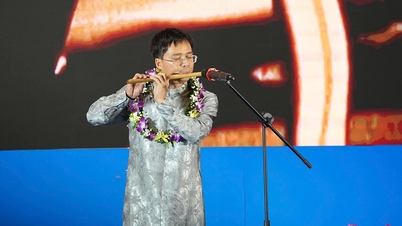

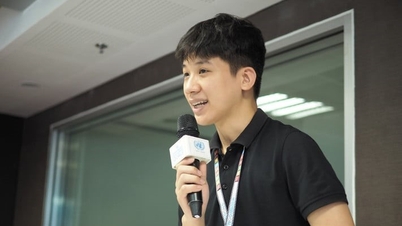

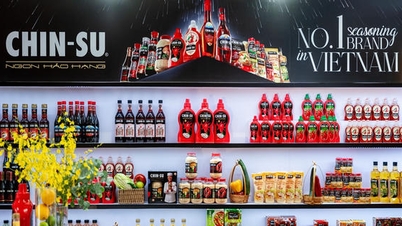

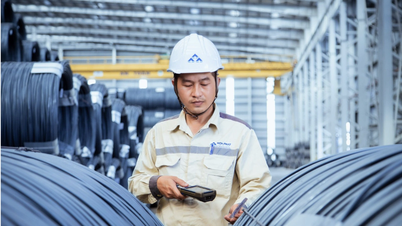

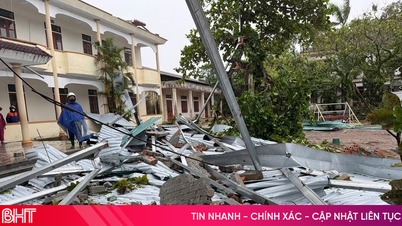
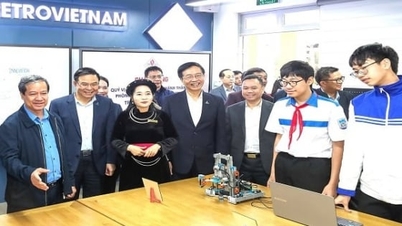

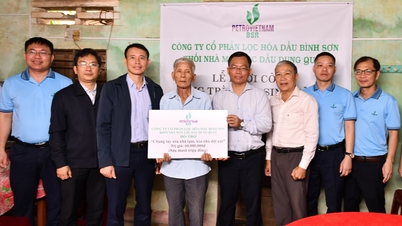








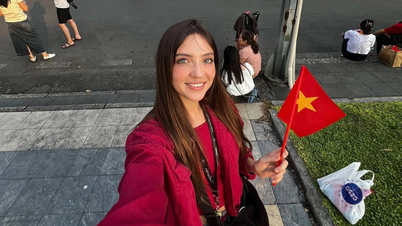
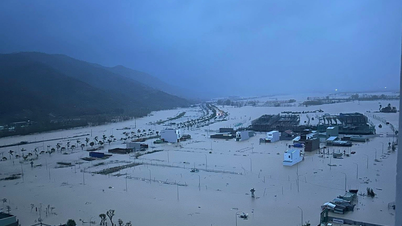
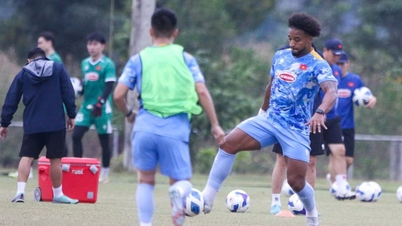

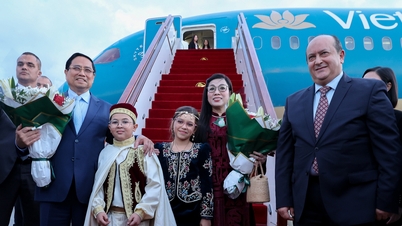


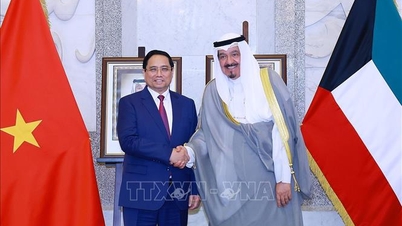


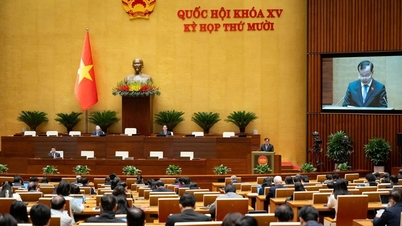

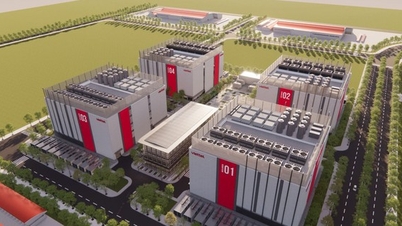
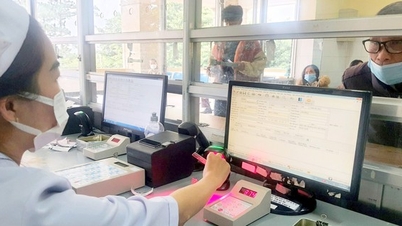
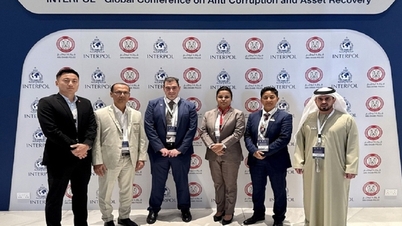
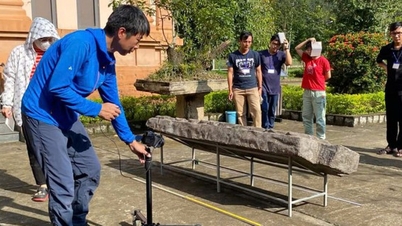
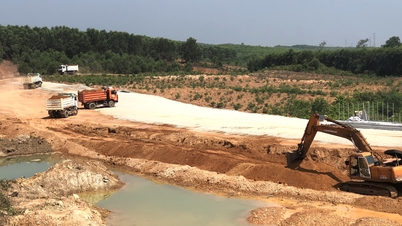



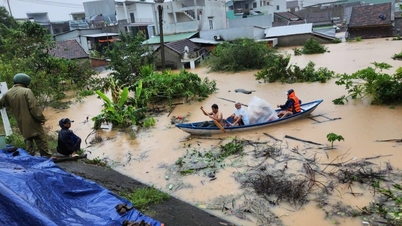

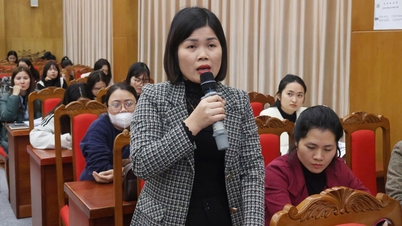












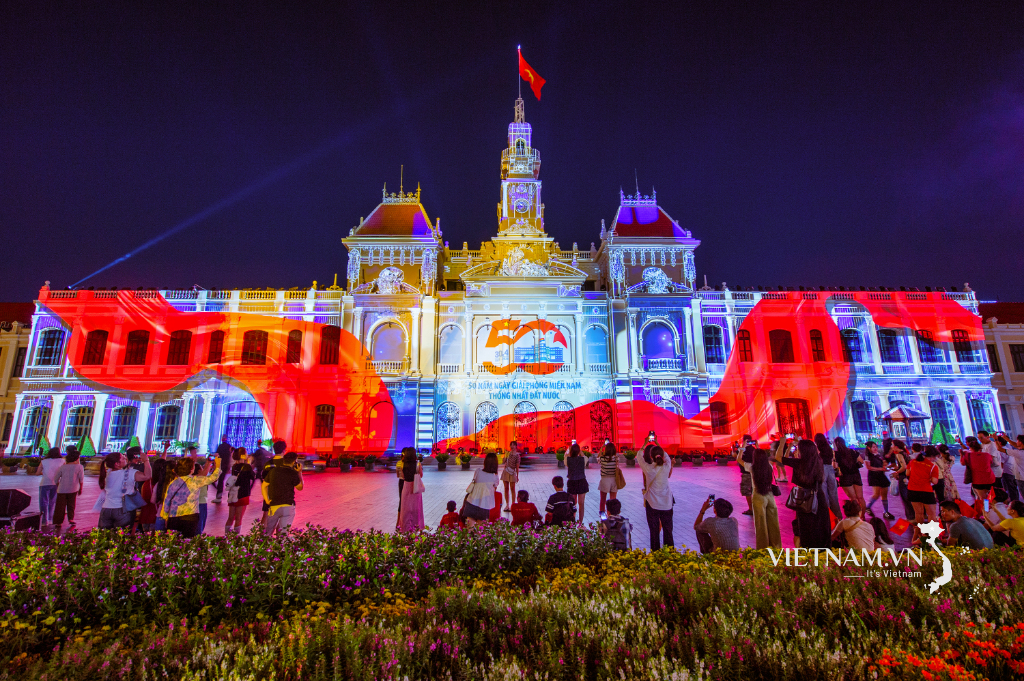


Comment (0)